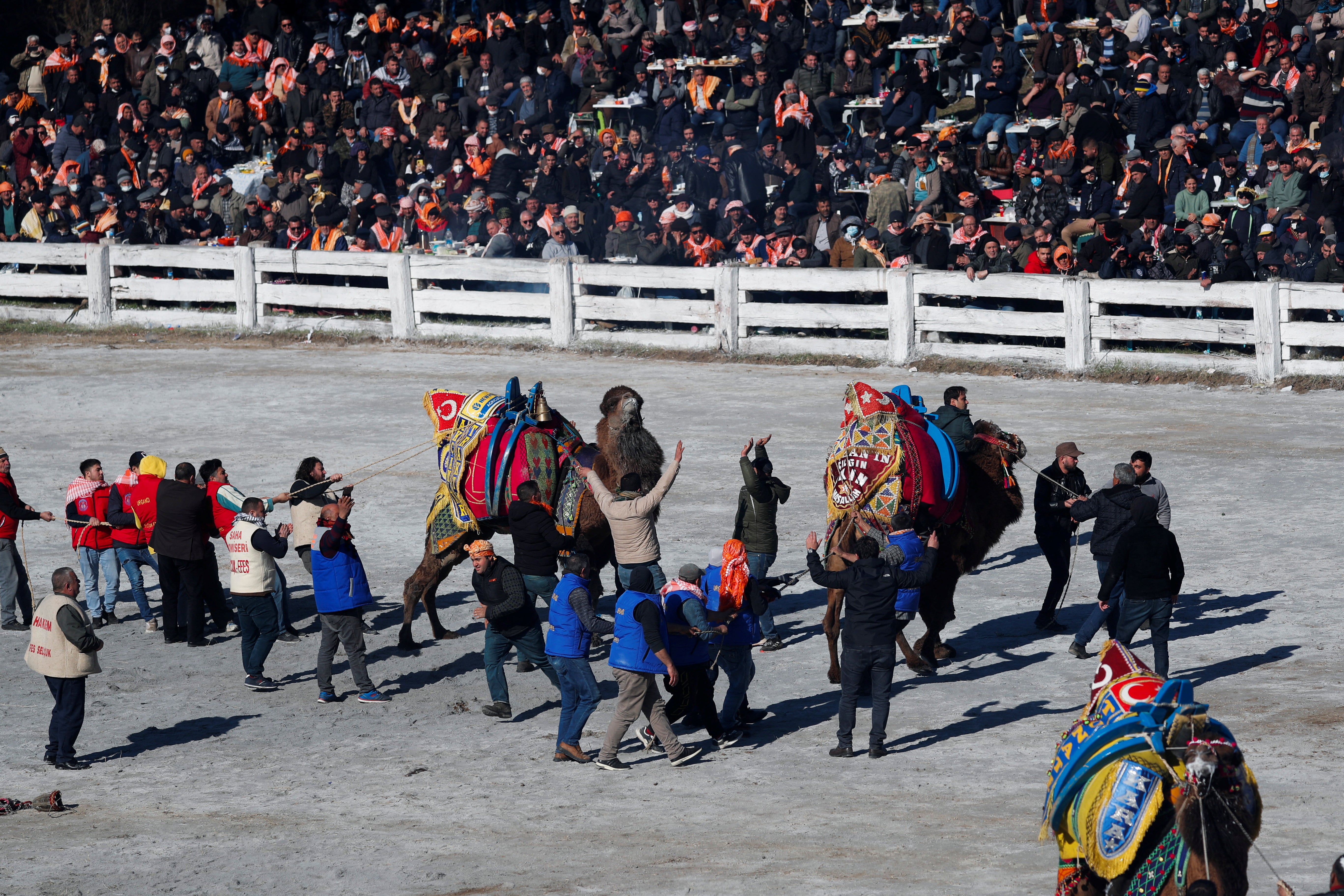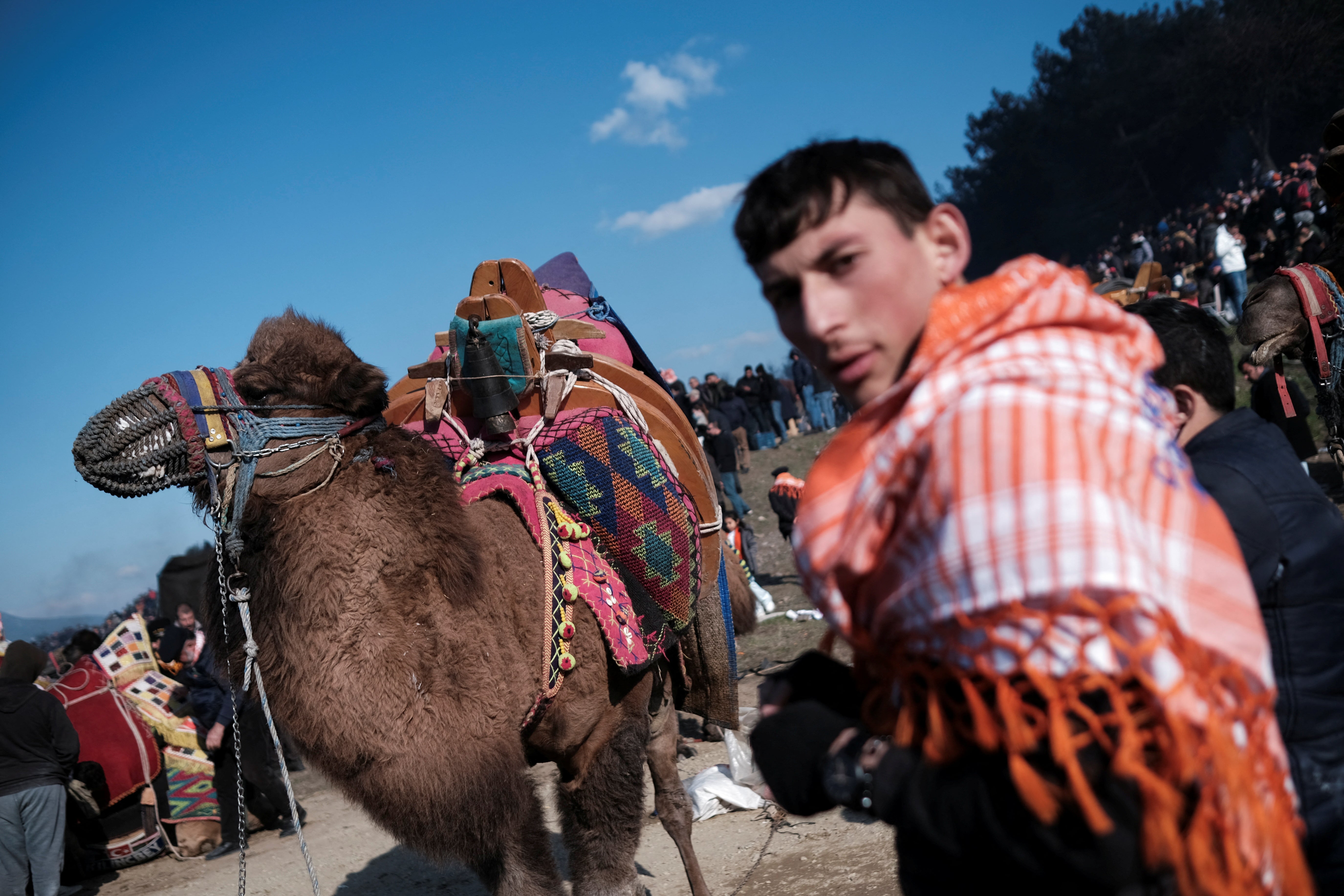Turkish camel wrestling festival criticised by animal rights activists
More than 150 camels competed in the 40th annual wrestling festival in western Turkey

Your support helps us to tell the story
From reproductive rights to climate change to Big Tech, The Independent is on the ground when the story is developing. Whether it's investigating the financials of Elon Musk's pro-Trump PAC or producing our latest documentary, 'The A Word', which shines a light on the American women fighting for reproductive rights, we know how important it is to parse out the facts from the messaging.
At such a critical moment in US history, we need reporters on the ground. Your donation allows us to keep sending journalists to speak to both sides of the story.
The Independent is trusted by Americans across the entire political spectrum. And unlike many other quality news outlets, we choose not to lock Americans out of our reporting and analysis with paywalls. We believe quality journalism should be available to everyone, paid for by those who can afford it.
Your support makes all the difference.A traditional camel wrestling festival in Turkey has been condemned as a “picture of shame” by animal rights activists.
The contest, which pits camel against camel and makes them fight until one falls, retreats, or screams, is very popular and attracts thousands of people every year.
Held in Selcuk, part of the Aegean province of Izmir in western Turkey, the 40th International Camel Wrestling Festival took place on Sunday and showcased 152 camels sporting saddles, ornamental cloths and colourful embroidery on their humps and necks.
The camels were brought into a sandy arena to wrestle with each other, although referees stood by to limit the amount of harm the animals inflicted. The camels also wore muzzles so they could not bite each other.
The animals wrestle once a day, with each match lasting 15 minutes, and competition winners are rewarded with a Turkish carpet.
Thousands of people set up tables and chairs on a hill adjacent to the arena and cooked on barceques while they watched the battles.
Gulgun Hamamcioglu, the Izmir representative for the Animal Rights Federation, told Reuters that goading the animals to fight was a “big crime”.
She said: “You see an animal, a live being fight in front of you and it is suffering, is wounded and maybe they kill each other. People enjoy this and maybe make a financial profit. Please let’s all together stop this picture of shame, this scene that makes us ashamed of humanity.”

The practice of camel wrestling has fallen in and out of favour over the past few decades. In the 1920s, it was widely discouraged but saw a resurgence in the 1980s following a renewed interest in Turkey’s traditional culture, according to a report from the New York Times.
Mehmet Falakali, former head of the tourism ministry’s office in Selcuk, defended the practice by saying that the camels cannot seriously hurt each other and that there were people to keep them apart if the clashes became too intense.
“The people who are tasked with separating the camels pull them away from each other when the referee sees a (negative development),” he said. “There is certainly nothing such as their breaking each others’ hooves or biting each other.”
Necip Cotura, who enters his three camels into the competitions, said that the event “is something that is done with love.”
He added: “It is not a fight, it is wrestling - just like how humans wrestle.”
Additional reporting by agencies.



Join our commenting forum
Join thought-provoking conversations, follow other Independent readers and see their replies
Comments